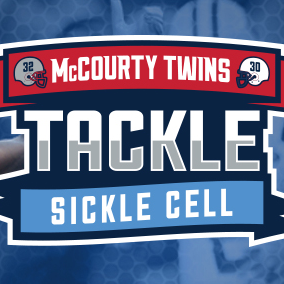 Patients with Sickle Cell Disease are routinely transfused. It is critical that matching blood is found and used for these patients. This blood would most likely come from other African Americans and Hispanics.
Patients with Sickle Cell Disease are routinely transfused. It is critical that matching blood is found and used for these patients. This blood would most likely come from other African Americans and Hispanics.
Read more here.
 Patients with Sickle Cell Disease are routinely transfused. It is critical that matching blood is found and used for these patients. This blood would most likely come from other African Americans and Hispanics.
Patients with Sickle Cell Disease are routinely transfused. It is critical that matching blood is found and used for these patients. This blood would most likely come from other African Americans and Hispanics.
Read more here.